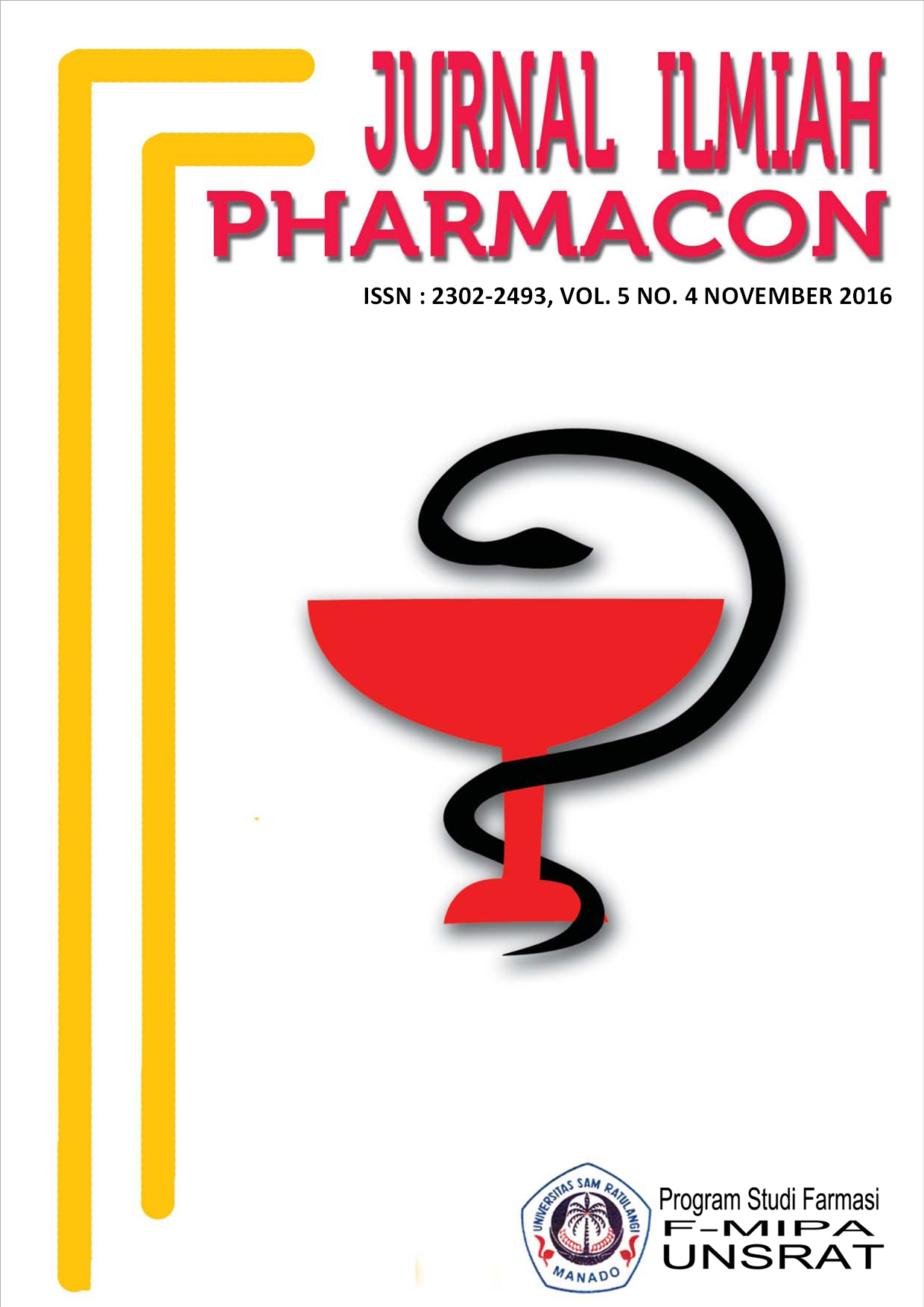GAMBARAN POSISI KERJA DAN KELUHAN GANGGUAN MUSCULOSKELETAL PADA PETANI PADI DI DESA KIAWA 1 BARAT KECAMATAN KAWANGKOAN UTARA
DOI:
https://doi.org/10.35799/pha.5.2016.14045Abstract
GAMBARAN POSISI KERJA DAN KELUHAN GANGGUAN MUSCULOSKELETAL PADA PETANI PADI DI DESA KIAWA 1 BARAT KECAMATAN KAWANGKOAN UTARA
Christia E. Malonda1), Paul A.T Kawatu1), Diana Vanda Doda1)
1)Fakultas Kesehatan Masyarakat UNSRAT Manado, 95115
ABSTRACT
Work-related Musculoskeletal Disorder are common in workplaces. Working with a static posture and continuously working within a long period of time can potentially cause musculoskeletal disorder (MDs) complaint. Farmers in West Kiawa 1 Village still uses traditional ways or manual material handling method in doing their job, particularly the task of planting rise. The aims of this research is to assess the risk level of working posture and the level of MSDs complaints among rice farmers of West Kiawa 1 Village North Kawangkoan subdistrict. This research is a descriptive studies. The instruments were REBA questionnaires to assess the level of risk and Nordic Body Map to identify the level of MSDs complants. There were 21 farmers participated in this research. The result shows that farmers who undertake awkward working posture were experience a moderate risk are as much as 17 farmers (18,0%), and high risk as much as 4 farmers (19,0%). There are 3 farmers (14,3%) who experience low level of musculoskeletal complaint, 17 farmers (81,0%) have moderate level of MSD, and 1 farmer (4,7%) has high level of MSD. This research concludes that planting rice task that require bending position continuously for a long periode of time may increase the physical workload and may lead to musculoskeletal complaints.
Keywords: Farmer, Work Posture, Musculoskeletal Disorder
ABSTRAK
Musculoskeletal masih sering dialami pekerja di tempat kerja. Pekerjaan dengan sikap kerja statis dan dilakukan secara terus menerus dalam waktu lama dapat berpotensi menimbulkan keluhan musculoskeletal disorder (MSDs). Petani di Desa Kiawa 1 Barat masih menggunakan cara tradisional atau manual dalam melakukan pekerjaan khususnya saat menanam padi. Tujuan penelitian ini untuk mengevaluasi tingkat resiko dari keluhan gangguan musculoskeletal (MSD) dan identifikasi tingkat keluhan MSD pada petani padi di Desa Kiawa 1 Barat Kecamatan Kawangkoan Utara. Penelitian ini merupakan penelitian deskriptif. Instrumen yang digunakan adalah kuesioner REBA untuk menilai tingkat resiko MSD dan Nordic Body Map untuk mengidentifikasi tingkat keluhan MSD pada petani. 21 petani yang telah memenuhi kriteria inklusi dan eksklusi berpartisipasi dalam penelitian ini. Hasil penelitian menunjukkan bahwa petani yang melakukan posisi kerja dengan tingkat resiko sedang berjumlah 17 orang (81,0%), dan tingkat resiko tinggi berjumah 4 orang (19,0%) dan petani yang mengalami keluhan musculoskeletal dengan tingkat resiko rendah berjumlah 3 orang (14,3%), tingkat resiko sedang berjumlah 17 orang (81,0%), dan tingkat resiko tinggi berjumah 1 orang (4,7%). Kesimpulan dari penelitian ini yaitu pekerjaan menanam padi melibatkan posisi kerja membungkuk secara terus-menerus yang akan meningkatkan beban kerja fisik dan bisa menyebabkan keluhan musculoskeletal.
Kata kunci: Petani, Posisi Kerja, Keluhan Musculoskeletal
Downloads
Published
How to Cite
Issue
Section
License
Authors who publish with this journal agree to the following terms:
- Authors retain copyright and grant the journal right of first publication with the work simultaneously licensed under a Creative Commons Attribution-NonCommercial 4.0 International License that allows others to share the work with an acknowledgement of the work's authorship and initial publication in this journal.
- Authors are permitted and encouraged to post their work online (e.g., in institutional repositories or on their website) prior to and during the submission process, as it can lead to productive exchanges, as well as earlier and greater citation of published work (See The Effect of Open Access)










